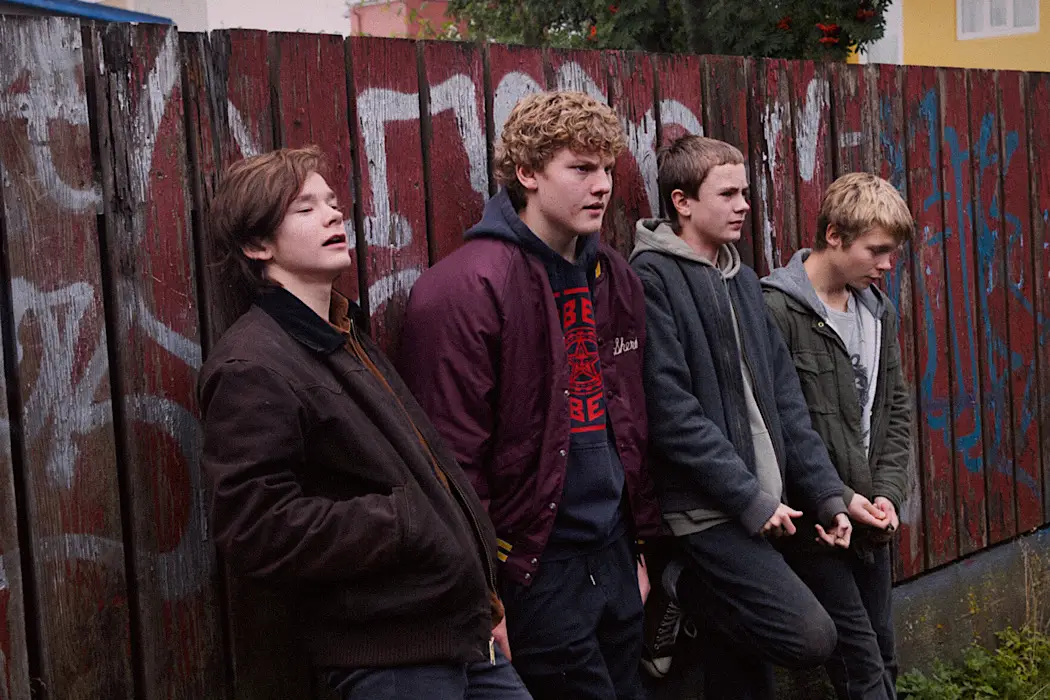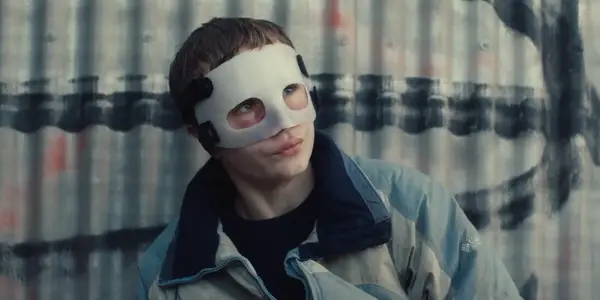BEAUTIFUL BEINGS: Angry and Aimless

Soham Gadre is a writer/filmmaker in the Washington D.C. area.…
There is a lot of necessary and deserved talk in current culture about the anger of young men. Particularly, the ways in which young men feel isolated, alienated, and left in a situation of desperation for being ‘known’. Of course, this has two sides to it. On the one hand, there is a way to sympathize with young men’s lack of societal embrace, a feeling that they are to fend for themselves to tackle the ills of the world. On the other hand, the violence often associated with such alienation leads people to rightfully believe that masculinity and patriarchal societal standards make men only behave in certain ways or find answers within only one path. The latest film from Guðmundur Arnar Guðmundsson’s Beautiful Beings focuses on such young men who have been failed by their parents and are in response, pushing the limits of control.
A Well-Intentioned but Hokey Premise
The aims of the movie are similar to another Northern European feature that won the Best International Film Oscar a while back, Susanne Bier’s Hævnen (2010). The central premise essentially creating situations of dire abuse and cruel subordination that in turn manifest into some sort of comeuppance, and through this comeuppance, a discovery about the world and human relationships. It’s sort of a hokey idea, that getting revenge on people, cause creating a devastating effect, reveals something new or grand about the human experience.

The central figure of the movie is a boy named Addi (Birgir Dagur Bjarkason) who is in a threesome of rebellious misfits along with Konni (Viktor Benóný Benediktsson) and Siggi (Snorri Rafn Frímannsson), but the movie doesn’t start with him. It starts with Balli (Áskell Einar Pálmason), who is bullied, made fun of, and in a shockingly brutal act, smashed in the face with a rotting tree branch by a schoolmate which renders his face broken.
Lost Boys
Addi finds a weird sense of guilt for Balli and thus patronizes him by bringing him into his “gang”. They make fun of him for being a freak at first but warm up to him later on. The movie also incorporates magical realism – in the form of Lauri’s mom being clairvoyant and Addi having had dreams that sort of predict a future for him and his friends.

The movie juxtaposes its cruelty, often poured on through abusive and neglectful parent relationships, and also the try-hardiness of its central youth who do everything they’re not supposed to do. This movie makes it plainly clear that these boys are misled and lost. But there isn’t really anything gleaned from this. We see news clips on Icelandic television saying there’s an “epidemic” of male violence but the movie considers these to be enough in dispelling the current state of the populace.
Conclusion:
While Beautiful Beings is well-intentioned and certainly emotionally resonant in parts, it stops short of having a lasting emotional effect. Its central characters are difficult but not complex. Likable enough as the film but not one you can really grasp. They’re always at arm’s length and their behaviors – smoking cigarettes, beating other people up, trying to make themselves known and powerful in the world – always stop short of revealing what’s underneath.
Beautiful Beings was released on VOD for US audiences on April 25, 2023
Watch Beautiful Beings
Does content like this matter to you?
Become a Member and support film journalism. Unlock access to all of Film Inquiry`s great articles. Join a community of like-minded readers who are passionate about cinema - get access to our private members Network, give back to independent filmmakers, and more.
Soham Gadre is a writer/filmmaker in the Washington D.C. area. He has written for Hyperallergic, MUBI Notebook, Popula, Vague Visages, and Bustle among others. He also works full-time for an environmental non-profit and is a screener for the Environmental Film Festival. Outside of film, he is a Chicago Bulls fan and frequenter of gastropubs.













